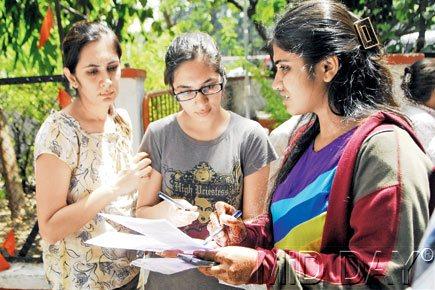HSC Sociology textbook prescribed by the Maharashtra board that claims parents of ugly and handicapped girls have to pay dowry to get them married sparks controversy

Shocking! Ugly, handicapped brides pay dowry: Maharashtra textbook

Representational Pic
ADVERTISEMENT
One of the key campaigns being run by Prime Minister Narendra Modi is the 'Beti Bachao, Beti Padhao' one. But it seems his officials and authorities in Maharashtra are not in sync with his idealogy of women's empowerment.
In what is a huge embarrassement to the Maharashtra government, a state board approved Sociology textbook for class 12 says that ugly or handicapped girls are the reason for the social evil of dowry in India.
The reasoning appears in the textbook under the title, "Major Social Problems in India" prescribed for Class 12 students in Maharashtra.

The offending paragraph
In chapter 3, under sub-heading No 12 titled 'Ugliness', the paragraph reads: "If a girl is ugly and handicapped, then it becomes very difficult for her to get married. To marry such girls, the bridegroom and his family demand more dowry. Parents of such girls become helpless and pay dowry as per the demands of the bridegroom's family."
Besides "ugliness" and "handicap" for a marriageable girl, the chapter has listed other factors like religion, caste system, social prestige and compensation principle, and said that "generally all people give and take dowry".
"Expectation of a suitable bridegroom" is also listed as a reason, and the explanation is equally offensive - that parents looking for good candidates for their daughters are "prepared to spend more", so bridegrooms demand "maximum dowry".
There has been a furore over the passage in question with professors and academics raising a hue and cry. But the book has been read by thousands of students over the last three years to prepare for the Higher Secondary Certificate board examinations and is likely to have caused a lot of damage.
Many professors, expressing shock at the chapter on dowry, say they prefer to skip the controversial parts while teaching students.

Is this what's being taught to students?
Board chairman Gangadhar Mamane told news agency PTI, "I will discuss the issue with the board of studies and will then comment on it."
Following the controversty, Maharashtra Education Minister Vinod Tawde said that he had discussed the matter with the Maharashtra State Board of Secondary and Higher Secondary Education Chairman Gangadhar Mhamane.

Maharashtra education minister Vinod Tawde
Believe it or not the Minister actually has argued that the issue was nothing new and is being taught to the Class 12 students since the past three years.
He, however, appealed to all to "keep politics out of education", while the matter was being tackled.
Tawde added that the matter found "objectionable" would be placed before the concerned Board of Studies - which designs and approves the course syllabus - for its report.
After getting the report, the government will consider the next step in the issue, he said.
Education Department officials, preferring anonymity, could not confirm off-hand if the offensive paragraphs also appear in any other languages in which the Sociology subject textbook is prescribed.
 Subscribe today by clicking the link and stay updated with the latest news!" Click here!
Subscribe today by clicking the link and stay updated with the latest news!" Click here!






